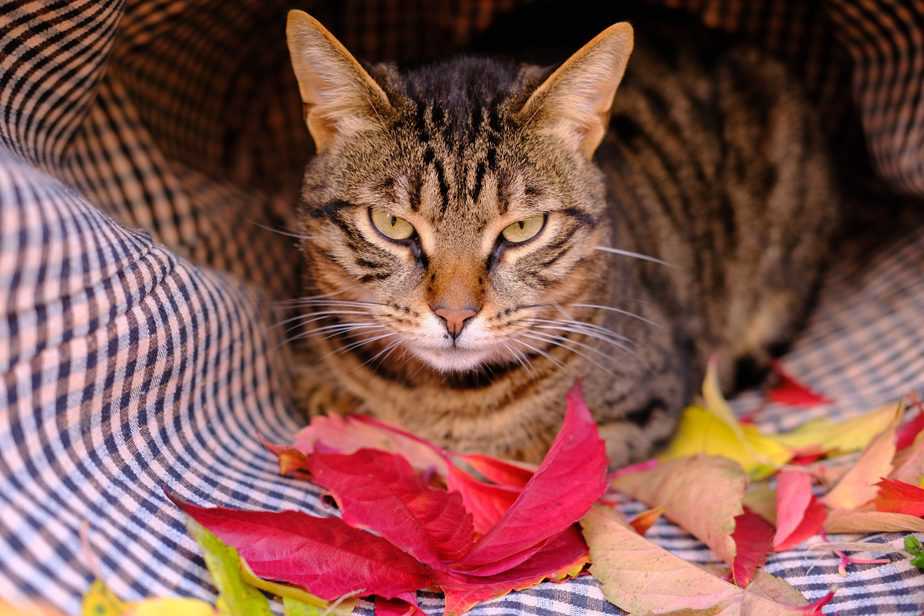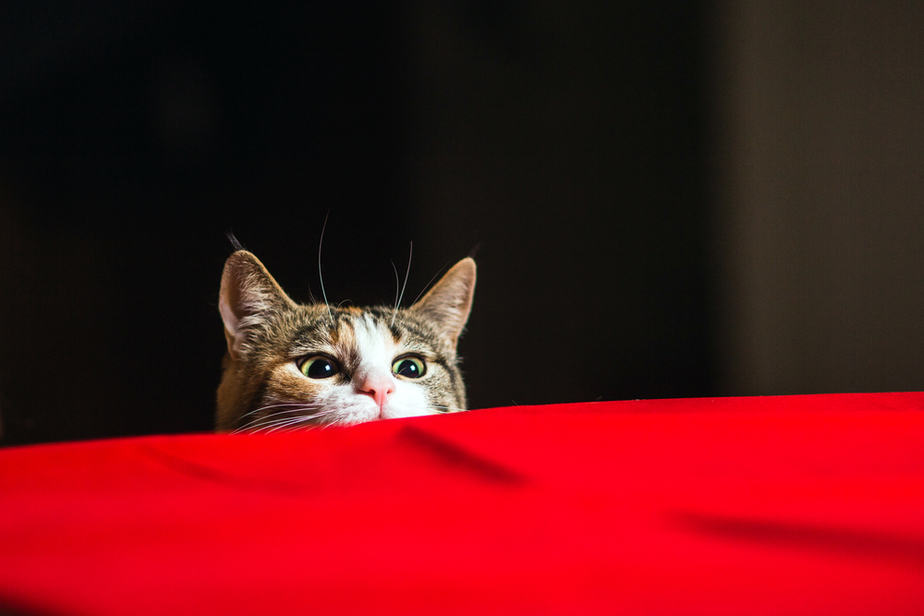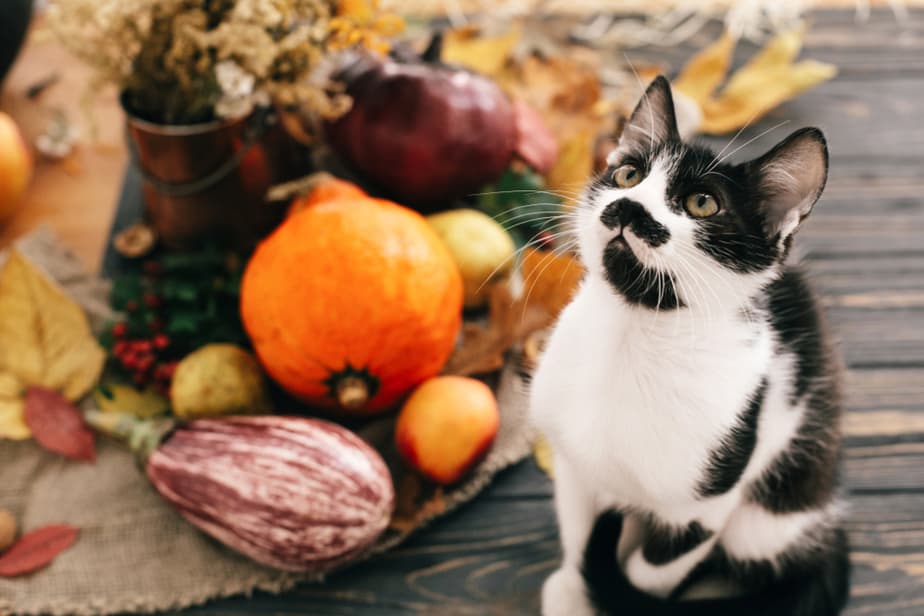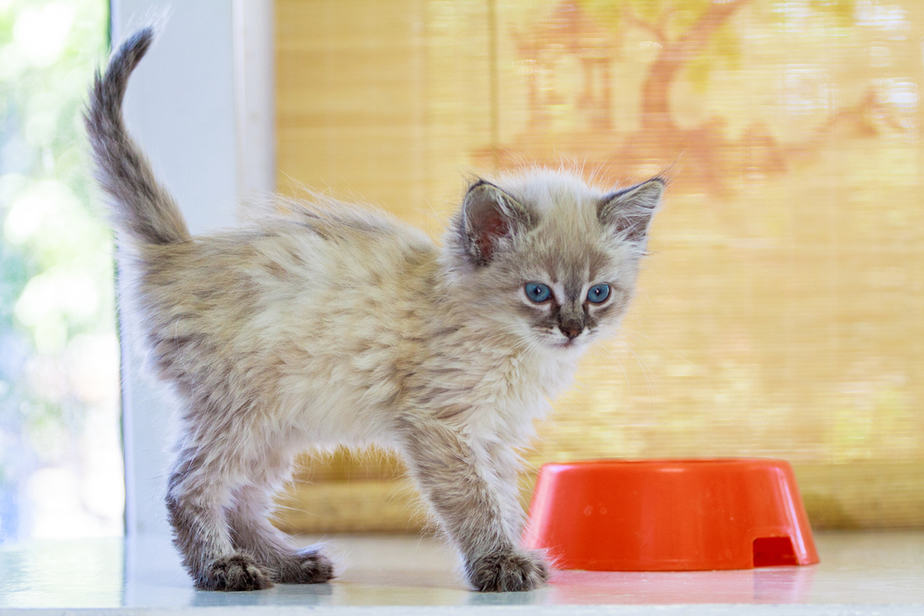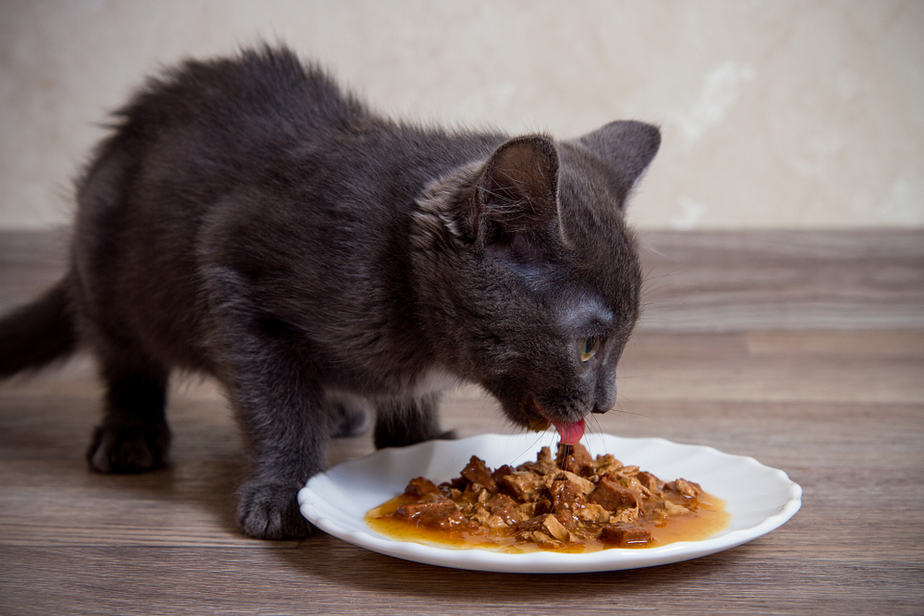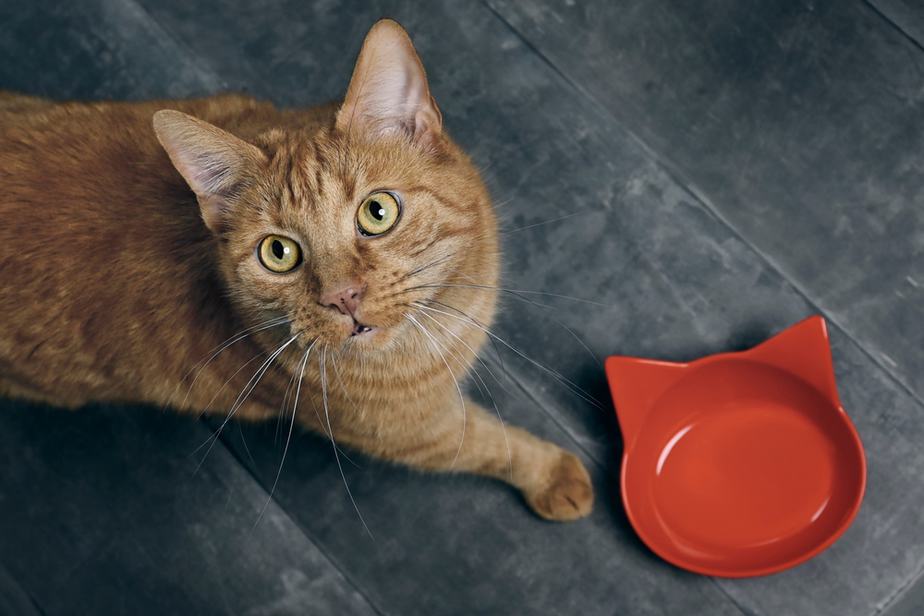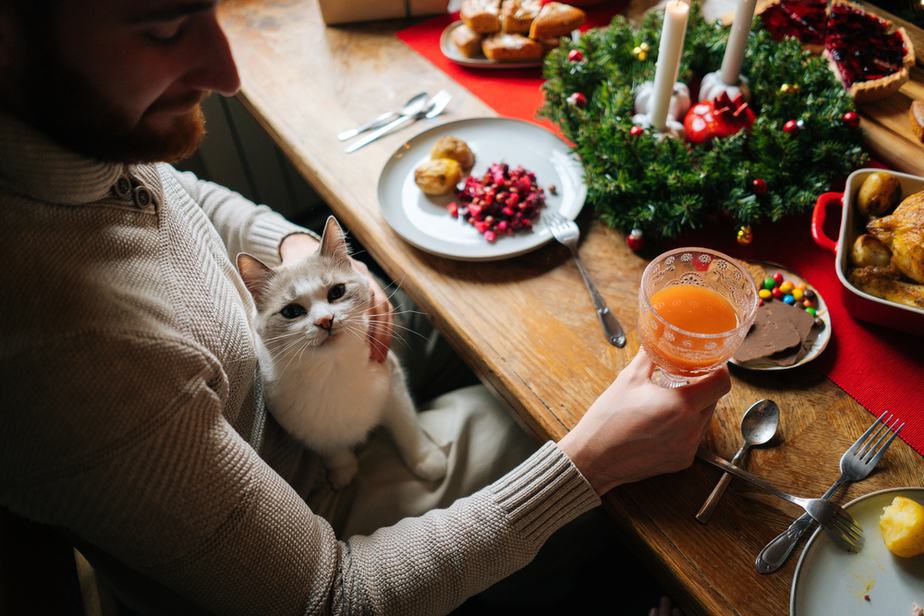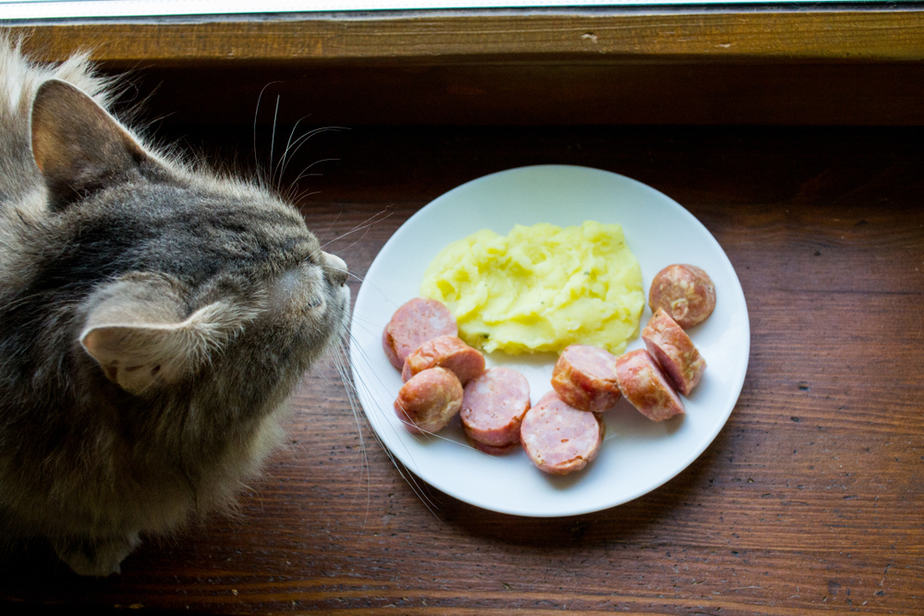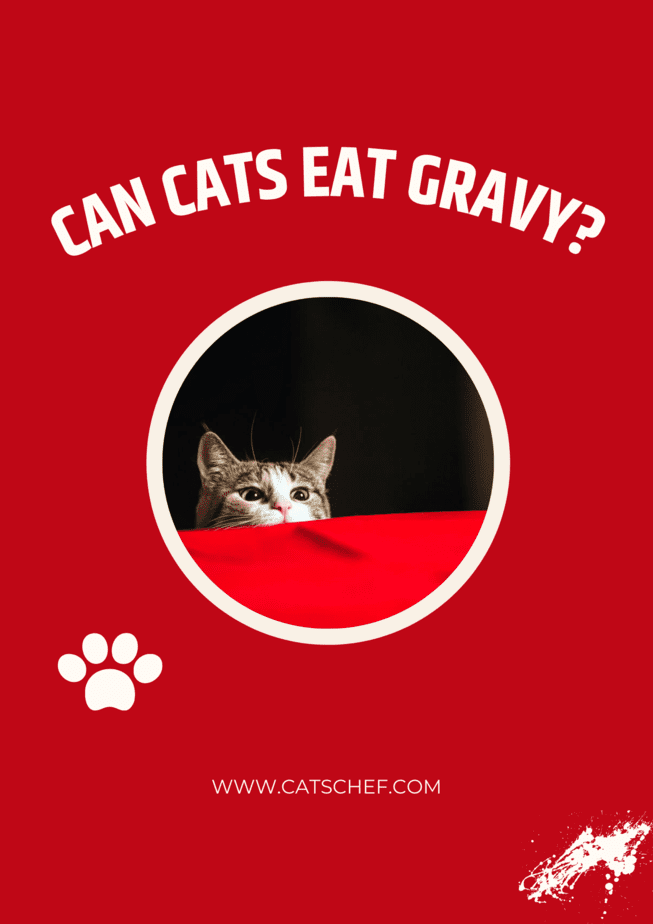📖 Table of Content:
Picture this – it’s Thanksgiving and you’re about to smother the turkey in your delicious, homemade gravy when your furry little monster jumps on the table to join the feast! Cats do have a reputation for being gluttonous. Still, you can’t help but wonder: can cats eat gravy?
It’s not a secret that cats absolutely love wet food! They carefully lick away every single drop, and often leave all the hard bits in their bowl untouched.
Whether you decide to feed your cat some homemade gravy, or you choose the store-bought option, make sure to carefully analyze the ingredients beforehand.
Cats can eat gravy – sort of. Cats should only eat gravy free of typical harmful ingredients; and rich in essential nutrients in charge of keeping your trusty sidekick happy and healthy. If you want to give your cat some gravy, you should first learn what makes it good or bad for her.
Is gravy good for cats?
Gravy can be good for cats, but you have to be aware that there are two typical types of gravy to be discussed. Gravy made for humans can be tricky as it’s often high in sodium and fat, and contains other harmful ingredients (like onion or garlic).
On the other hand, it can also contain protein, vitamins, and minerals which are incredibly beneficial for your cat’s digestive system. When it comes to homemade gravy, it truly depends on the way you make it.
Gravy made for cats is a great alternative as it doesn’t contain any harmful ingredients! Not only that, it’s typically a great source of hydration. Cats are infamous for avoiding water at all costs, so providing them with hydration through food is the way to go.
Cat gravy is also rich in collagen which is responsible for keeping your kitty’s bones strong and healthy. In addition to that, it contains various other nutrients in charge of providing your cat with the best digestive care possible.
Is gravy bad for cats?
We all love sharing food with our furry friends, but where should we draw the line? Generally speaking, gravy isn’t bad for cats, but that doesn’t mean it isn’t bad for your cat.
There are a couple of things you need to take into consideration. Firstly, food allergies and intolerances are very common among cats. Do your research and contact the vet if you need to. It is always best to be prepared!
Secondly, moderation is the key to success. Try your best to stay immune to your kitty’s pouty snout and goo-goo eyes begging for more – always control the portions! Too much wet food can lead to digestive issues, diarrhea, and vomiting.
Thirdly, most gravies made for humans aren’t suitable for cats due to their inadequate ingredients list. They are typically drowning in salt, dangerous vegetables, and tons of fat!
Unless you’re planning on feeding your kitty some delicious gravy specifically designed for cats, you might want to learn about the risks of gravies made for humans.
1. Salt and other seasonings
Thanksgiving gravy, chicken gravy, mushroom gravy – the list is endless. One thing all gravies made for humans have in common is the ridiculous amount of salt they normally contain.
But can cats eat gravy due to the high sodium levels? Is it even safe for your cat to have a few licks of this delicious sauce?
Cats love salt and salty snacks, so I’m very sad to report that salt isn’t safe for your furry companion. Anything over forty milligrams a day could cause some serious damage, and your cat might experience symptoms like loss of appetite, lethargy, and excessive thirst.
Other types of seasoning can also be harmful to your cat, especially because most commercially available seasonings contain high sodium levels. It’s best to avoid added salt if you’re planning on sharing your Thanksgiving dinner with your feline friend.
2. Vegetables
Vegetables are often the main ingredient of gravy. They add texture, flavor and offer many nutritional benefits to humans. However, cats are natural carnivores and have little to no need for vegetables in their regular diet.
Not only that, some vegetables are extremely toxic to cats. Garlic can affect your cat’s red blood cells and cause them to become fragile and burst. Excessive amounts of garlic can lead to serious health issues like anemia or organ damage.
Onion is not as toxic as garlic, but it is still a big no-no in the feline world. All types of onions (or any members of the Allium family) contain compounds called disulfides and thiosulphates, which are responsible for causing anemia in cats.
Eggplant is another vegetable found in various gravy recipes considered incredibly harmful to cats. Eggplants contain an alkaloid called solanine. This alkaloid is toxic to cats and can cause nausea, diarrhea, and vomiting.
Not all vegetables are harmful to cats. If you are planning on making a delicious, pet-friendly gravy you can count on bell peppers (red or green peppers), chickpeas, okra, and carrots.
3. Fat
“Can cats eat gravy due to all of the fat it contains? Isn’t it a bit too much for my feline?”
We all know that human gravy can contain a lot of fat. Consuming foods high in fat can be especially harmful to cats who are low on energy, or have preexisting digestive issues. Consuming too much fat could lead to an upset stomach, diarrhea and vomiting.
Additionally, fatty gravies are calorically dense so you want to make sure you control the number of calories your furry friend consumes regularly. While chubby kitties are adorable, weight issues could easily grow into health issues.
Cat gravy as an alternative to human gravy
Attention paw-lease! Gravy specifically made for cats is a real thing.
If your ravenous roommate is a big fan of wet food you might want to look into purchasing (or making) cat gravy. Continue reading, and you’ll find out everything there is to know about this delicious treat.
What is cat gravy?
Cat gravy is a mouth-watering sauce specifically made for felines with all their nutritional needs in mind. Commercial cat gravy can be found in canned wet food (as an addition to various meaty meals) or in cat food pouches on its own.
Brands like Purina and Whiskas have various gravy-based cat foods you can choose from. Purina even carries little gravy pouches you can use to put over your kitty’s dry food.
Think of it this way – you would never eat french fries without some side mayo or ketchup. Your feline friend might feel the same way about kibble!
What is cat gravy made of?
Commercial cat gravy is usually made of different types of meat (turkey, chicken, beef, fish, and seafood), unseasoned broth, non-harmful veggies, and some sort of thickener.
Turkey, chicken, and other types of meat are great sources of protein essential to your cat’s diet. Fish and seafood-based gravies also contain Omega-3 fatty acids and other important nutrients.
Another great source of protein and amino acids is bone broth. Bone broth is typically used in commercial cat gravy.
Pet-friendly gravy normally contains veggies that are not harmful to cats and provide plenty of vitamins and other nutrients.
Lastly, every gravy needs some sort of a thickener. Commercial cat gravy typically uses flour, cornstarch, gelatin, or tapioca. These ingredients may not be the best choice for your feline friend, but we will talk more about that later.
Cat gravy granules
Believe it or not, some kitties despise wet food! If you want your furry friend to be happy and healthy, you have to stray away from a kibble-based diet.
Cats don’t get thirsty the same way humans do, which means they can easily become dehydrated. Lack of thirst paired with a stubborn dry food obsession – you might have a problem on your hands.
Cat gravy is an excellent way to make up for the lack of moisture, and it gives you a chance to help your kitty get accustomed to wet food. Cat gravy granules are a great option for those strong-willed, wet food haters, as they offer you the opportunity to control the amount of moisture.
If you gradually add more liquid, you are on a sure path to success! Your furry companion will get healthier and happier, and won’t even know why.
Commercial vs. homemade
Let’s see if our grandmas were right. Is homemade food really superior in comparison with commercially available alternatives?
Commercial cat gravy is designed with your furry friend’s best interests in mind. It’s usually made with carefully picked ingredients while making sure all of them have a specific role in your kitty’s development.
Not to mention the practical side! You don’t have to spend hours in the kitchen; all you need to do is open the can (or the pouch) and let your kitty enjoy.
Pretty much the only downside is the fact that you can’t control what goes into it. If your cat has any allergies or food intolerances you want to be extra careful about what goes in her belly.
Many commercial gravies contain thickeners which make them high in carbohydrates and calories. Too much grain can also cause digestive problems in sensitive cats.
With homemade gravy, you get to control everything that goes into it! You can use all of your kitty’s favorite ingredients, and make sure you include lots of protein, fiber, vitamins, and minerals.
You may have to spend hours in the kitchen, but it will be well worth it! Your furry companion will be endlessly grateful.
How to make your own cat gravy?
If there are no cat gravy options where you live, you might be considering making your own gravy. This is the best opportunity to bond with your feline friend, use up those dinner leftovers, and make some paw-licking homemade cat gravy!
There are many recipes for a cat-friendly gravy on the internet, so you might feel overwhelmed by all the information. The easiest way to make some delicious gravy for your furry friend without spending hours in the kitchen is to use up any leftovers you already have.
Grab all of your remaining turkey, chicken, beef, or any other meat, and put it in a large pot. If you planned this in advance you might have saved the extra skin, fat, and bones – go ahead and add that, too.
You can also add any unused veggies. Carrots are a great choice, but make sure not to add any onion, garlic, eggplant, or other harmful vegetables (and seasonings).
All that’s left is to add some water, bring it to a boil and let it simmer for as long as you can wait. You can use this time to snuggle with your furball!
Make sure to strain and blend your mixture after it’s done, and your homemade cat gravy is good to go. That wasn’t so hard, was it?
Can cats eat Thanksgiving gravy?
While cats can certainly eat the Thanksgiving turkey (or at least the parts with less seasoning), it is not the best idea to feed your cat Thanksgiving gravy.
These types of gravies usually contain a lot of ingredients harmful to cats. Even if they don’t contain any onion or garlic, they’re still very salty and fatty. That doesn’t make them the best choice for your cat – especially if she has a sensitive stomach.
If your cat accidentally licks some gravy while you’re not looking, don’t worry! Thanksgiving gravy isn’t toxic to cats and it won’t cause any serious damage unless eaten in excessive amounts. Make sure to check for any signs of stomach upset, and if you’re really worried you can always contact your vet.
If you want to avoid the situation, I recommend you make some homemade cat gravy in time for Thanksgiving dinner. You will give your furry friend another reason to be thankful!
Can cats eat mashed potato and gravy?
Mashed potato and gravy are universally loved, but is this dish safe for your feline friend? The answer is – yes, kind of! Let’s break it down.
Potatoes are usually not harmful to cats. In fact, mashed, boiled, or baked potatoes are perfectly safe for your pet. They can even be found on some cat food ingredient lists.
But here’s the trick! In order to be safe for cats, potatoes need to be cooked properly. Uncooked or undercooked potatoes contain toxins that are harmful to cats.
You should also keep in mind that potatoes come from the same family as eggplants which are extremely dangerous. They also contain solanine, and when they turn green or sprout they become unsafe for your feline’s consumption.
So, your furry friend can eat mashed potatoes and gravy as long as you make sure it’s prepared correctly. To sum up – keep the potatoes well-cooked and keep the gravy free of harmful ingredients.
What other liquid foods can your cat eat?
If your trusty sidekick is sick, or has difficulty eating solid foods, you might be looking for liquid food alternatives to help your cat on the road to recovery.
Luckily, there are many commercial products you could use. If you are not sure where to start, you can always ask your vet for advice and recommendations.
There are also some homemade remedies you could use. Other than making homemade cat gravy, you could look into cat-friendly milk and broth.
You can try blending some chicken, beef, or bone broth with your pet’s favorite food. This is a great way to get your cat to eat while dealing with issues like a loss of appetite.
You could also try blending broth with boiled vegetables to provide your cat with essential nutrients. Ask your vet for advice on which vegetables would be the best choice for your pet. Even more so, make sure to have your cat under constant vet supervision if she requires a liquid diet due to health issues.
Final verdict: Can cats eat gravy?
Cats can eat gravy, but it’s up to you to choose the best option for your cat. There are many different gravies out there, commercial or homemade, and I’m sure you can find the perfect fit for your furry companion.
Cats are just like humans – they get bored if they eat the same thing over and over again. There are so many ways to spice up the routine and make their monotonous meals into gourmet delicacies. Adding cat gravy to their everyday meal is a perfect way to do that!
You should be careful when choosing the best cat gravy for your feline friend. Always pay attention to the ingredient list.
Avoid gravy if it’s high in sodium levels, fat, and calories. You also want to avoid gravy with harmful veggies like onion, garlic, or eggplant. And you definitely want to control the amount of gravy your cat consumes.
On the other hand, if your beloved kitty happens to hop on the table during Thanksgiving dinner and sneakily lick some of that gravy – you probably don’t need to be worried. If you have any concerns or doubts you can always contact your vet and make sure your kitty is safe.
Lastly, if your cat is a big fan of gravy you might want to look into some homemade cat gravy recipes. Don’t be lazy, your purr-fect little angel deserves it!
